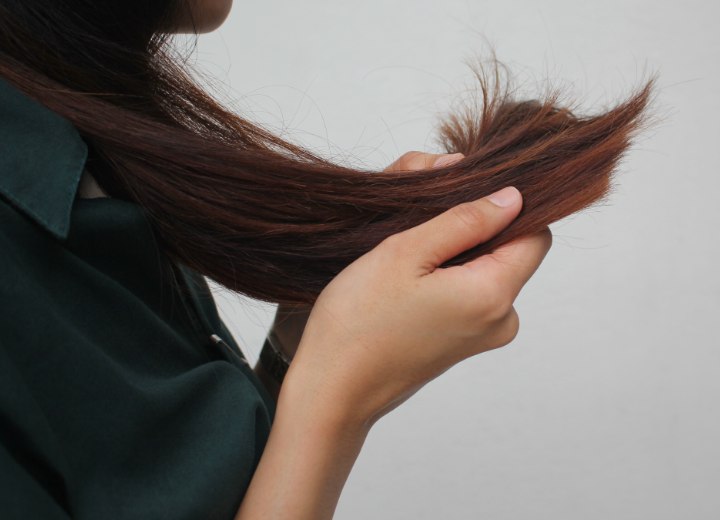Shampoo for Extremely Oily Hair

I've just come back from an appointment with my hairdresser - so that he could actually see and feel my hair. He was shocked and appalled. He knows what my hair is normally like and has always complimented me on my hair. He thought that maybe it is an "internal" problem or some kind of vitamin deficiency. Could you please give me some advice as to what else I can try to correct this problem? I'm about ready to just chop it all off!
While androgen is a male hormone, it is also produced by women and affects women in the same way as men. Stress can trigger the release of free androgens in the bloodstream, resulting in the oil-producing effects. Oil production is also stimulated by heat and humidity in the environment.
Here are some recommended tips to help combat overproduction of oil and help you to cope with oily hair:
Try using a clarifying shampoo without using a rinse-through conditioner. If you need some conditioning on the ends of the hair, use a spray-on, leave-in conditioner instead. Some women find it necessary to shampoo twice a day. (As a rule of thumb, make sure your clarifying shampoo is one you can see through. Opaque shampoo formulas generally contain added conditioners and ingredients that can be counter to resolving the oil removal problem.)
Also, don't skimp on shampoo when washing the hair. A given amount of shampoo can remove only so much oil (the surfactants in shampoos contain lipophilic molecules - which bind to oil - and hydrophilic molecules " which bind to water " allowing it to remove oil and dirt from the hair) and the suggested amount for use on the bottle refers to average amounts of oil and average lengths and densities of hair. If your hair is long, very dense, or extremely oily, you need to use additional amounts of shampoo per shampooing.
Furthermore, leave the shampoo on the hair longer than normal, to allow it the most possible time to remove the oil. The best course of action for you is to apply your shampoo to wet hair, and massage into a rich lather. Leave the shampoo in place for at least five minutes, then rinse and repeat the process. Leave the second shampoo application in place for another 5 minutes and rinse fully with lukewater water, followed by cool/cold water (which will help to slow down oil production).
If desired, you can follow up in your shampooing by rinsing the hair and scalp with witch hazel, which acts as an astringent and helps to remove any residual oils left after shampooing. It will also help to act as a bodifying styling lotion helping the hair look and feel fuller when dried with a blow dryer.
Other suggestions for dealing with over-production of oil by the scalp include scalp massage (done during the shampoo process), and brushing the hair (only when the hair is dry) with a natural bristle brush to help redistribute the oils present and to stimulate the scalp's circulation which helps to normalize oil production.
If you feel that your overly oily hair is caused by hormonal imbalance, you should consider consulting with your doctor to determine if there is a medical cause. And as much as I'm sure you respect your stylist's opinions, remember that no hairstylist is qualified to diagnose or recommend treatment for conditions that occur below the scalp, only at the surface or above.
©Hairfinder.com